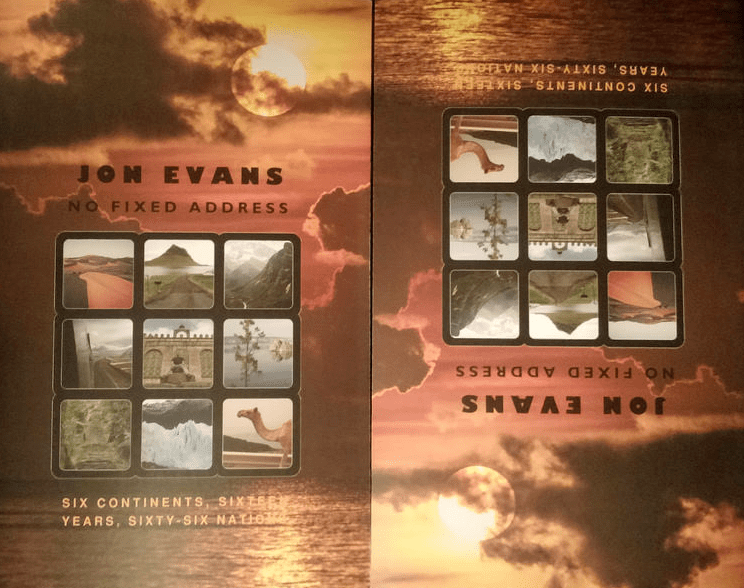Jon Evans
More posts from Jon Evans
Remember e-books? Those were the days, weren’t they? Those crazy few years when the fad of reading on a Kindle swept the nation. Now, of course, that fit of mass hysteria is behind us. E-book sales are falling, down more than 10% in 2015 — YA down 44%! — while used bookstores are coming back. Yes, that’s right; print is regaining its regal primacy; e-books are dead. Right?
You look suspicious. How strange. It’s almost as if you think that because those numbers come from the Association of American Publishers, they might indicate something rather different from the death of the e-book; they might be a signifier of the rise of smaller publishers not tracked by the AAP, and/or, the growth of online reading via eg Wattpad or Amazon’s Kindle Unlimited. Author Earnings argues that what we’re really seeing is that AAP publishers “have seen their collective share of the US ebook market collapse.” Mathew Ingram in Fortune adds, rhetorically, “Isn’t a drop in sales just a natural outcome of the publishers’ move to keep e-book prices high?”
Somehow I don’t think Amazon is running particularly scared. They added three million new Prime members this Christmas season, who can use Amazon’s Kindle Owners Lending Library to check out free books. Those don’t count as e-book sales. Neither does Kindle Unlimited, Amazon’s subscription service. I’m only one data point, but I’ve published eight books (cf the image up top) and I can tell you that, for me at least, the ratio of “books read through Kindle Unlimited” to “Kindle copies sold” is about 8:1.
Also, via John Scalzi’s analysis of the situation:
https://twitter.com/bethmeacham/status/646755351304474624
I understand that publishers mostly want e-books to fail, largely because Amazon controls even more of the e-book market than the dead-tree market. An understandable concern. I love Amazon, but is its monopsony good for authors? Probably not. (And in the long run, what isn’t good for authors isn’t good for readers, unless prices go crazy-high.)
…But then, traditional publishers’ walled gardens weren’t great for many authors either. Even if you managed to fight your way into that walled garden, if you didn’t have a quick hit with your first few books, you were often soon frozen out. The legendary “death of the midlist” predated e-books; some say it even predated Amazon.
I propose that today’s status quo is actually pretty good for authors and readers. We suddenly have a huge spectrum of publishing options, to fit every possibility.
Publishers perform a valuable service — think of them as the VCs of the book world — but, in the same way that you don’t need a bazillion dollars from a big-name VC to launch a startup any more, you no longer need a Big Five publisher to get your book out the world. The indies, the micro-publishers, the self-publishers, the crowdfunders — there’s room for everyone.
So why doesn’t this status quo feel great? Because it provokes intense anxiety in everyone: publishers, authors, and readers.
Well, publishers, obviously, have to deal with the Amazon devil, whether they like it or not; and they have to worry about the cannibalization of their industry by micropublishers, online publishers, etc. Their share of the pie is shrinking (although it’s not going away.)
For authors, there used to be a well-known and well-understood path to success. A winding mountain path full of cliffs and high winds and deadly monsters, but a path nonetheless. Now publishing is more like a trackless jungle. You have to somehow find your way through it with no map, no compass, a really crappy knife, and a vague sense that the moss might grow on the north side of the trees, while hoping that you don’t walk under any leopards.
As for readers — they no longer know where to go to read the next book that transforms how they see the world. Buy a book on Amazon? Physical or e-? Or go to Smashwords, because you’ve heard they’re better for authors? Trek out to a physical bookstore? Check out something from Kindle Unlimited and/or the Kindle Lending Library, for free, before you commit your money? Surf through Wattpad or Feedbooks? It’s the anxiety of choice.
Books are really in the business of attention, and consideration, and they have more and more competition. YouTube; Twitter links; TV bingewatching (some with depth and complexity that rivals that of great novels); Netflix movies; in short, what amounts to the instant accessibility of the entire library of human creativity, for free or cheap. Plus, of course, other books, an ever-growing number of other books, because the number of interesting new books published every year surely must exceed the number that become culturally irrelevant.
Whatever else happens, I promise you this, we’ll keep reading, because reading a book remains one of the most emotionally and intellectually powerful experiences available to us as human beings.
Ever realised how fucking surreal reading a book actually is? You stare at marked slices of tree for hours on end, hallucinating vividly
— Katie (@KatieOldham) December 9, 2014
But if you ask me, what we really need is not more authors, or better publishers. What we most need is a vastly better system to identify the books we will love, without having to invest so much time and mental effort into a book before coming to the conclusion that (for this particular reader) it’s no more than mediocre. Build the mousetrap of better book discovery, and I for one will steamroller a trail to your door.































Comment